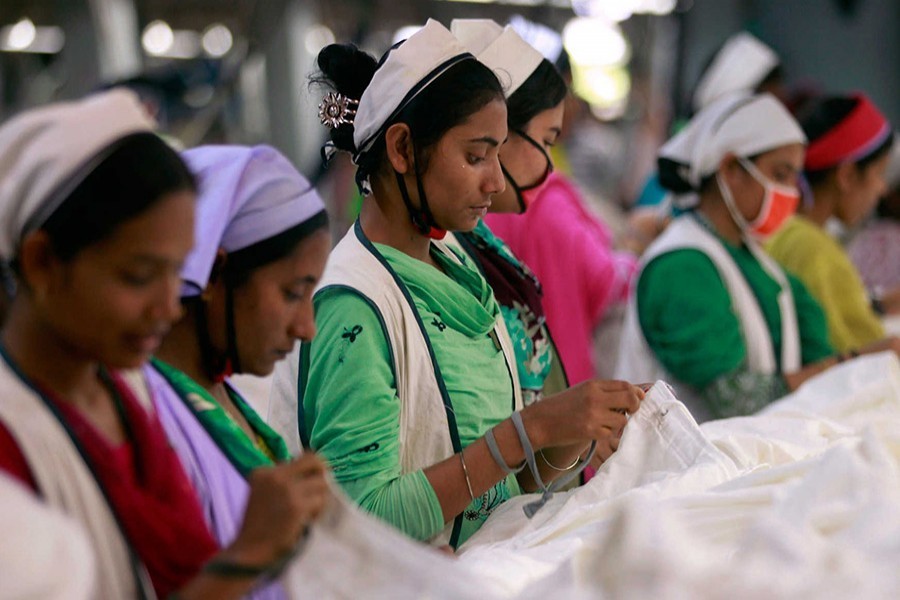Some 833 factories, including textile and readymade garment (RMG) units, across the country are under close monitoring by a law-enforcing agency and trade bodies, as they were yet to pay their workers' wages for March until Monday (April 18).
Labour unrest over payment of wages and festival allowance ahead of Eid-ul-Fitr might take place in these units, officials warned.
People familiar with such a situation beforehand said non-payment of dues, variety in festival allowance and workload are among other reasons that might fuel unrest.
A total of 9,177 factories located in six zones - Ashulia, Gazipur, Chattogram, Narayanganj, Mymensingh and Khulna - are under the jurisdiction of Industrial Police (IP).
Of the total, 833 factories haven't paid their workers yet. Among them, 120 are the members of Bangladesh Garment Manufacturers and Exporters Association (BGMEA), according to the IP.
Some 49 are registered with Bangladesh Knitwear Manufacturers and Exporters Association (BKMEA) and 34 are affiliated with Bangladesh Textile Mills Association (BTMA).
Apart from them, three factories under the Bangladesh Export Processing Zones Authority (BEPZA) and two other jute mills are also yet to pay March wages.
The number of non-RMG factories is 625 and they all run the risk of witnessing possible labour unrest over payment of timely wages and other allowances, as per the IP.
When asked, an IP official said they were closely monitoring these factories and holding meetings with authorities of the factories for timely payment, in order to avoid any untoward incidents.
They also discussed the issue with the trade bodies concerned and sought cooperation in this regard, he added.
Earlier, on April 11, State Minister for Labour Monnujan Sufian asked factory owners and authorities of the state-owned industries to pay festival allowances, wages and other dues to the workers before the start of the Eid-ul-Fitr holidays.
The state minister also instructed the factory owners to pay at least 15 days' wages of April to the workers before Eid, in case they fail to make a full month's payment.
She asked the factories to follow the government holidays while announcing Eid holidays, adding that companies might adjust the holiday period depending on shipment time for export goods and based on a consensus with workers.
Labour leaders attributed absence of fixed festival allowance in garment factories, partial and non-payment of festival allowance during last Eid, payment of wages and allowances on the last working day before Eid holiday, mass termination, non-payment of legal benefits and sudden closure or lay-off of factories to the possible risk of unrest.
Bangladesh Garment Workers' Solidarity in a separate statement issued on Friday demanded payment of festival allowance and full payment of wages for April before Eid holidays.


